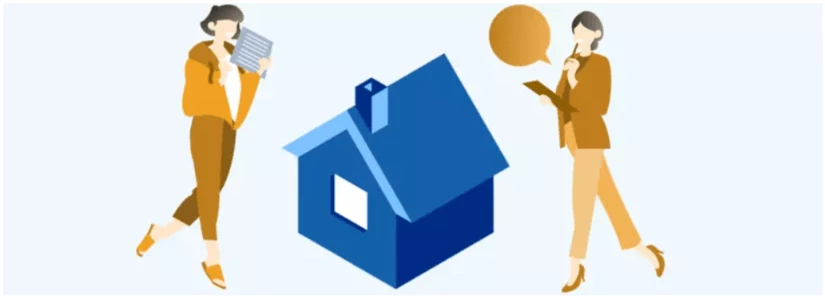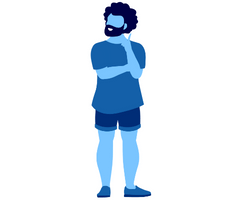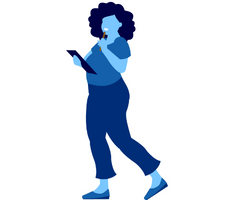
Moving home?
Sort out all your utilties!

Priority is usually given to applicants for social housing if they are in particular situations that make them vulnerable. Social housing is an option in Ireland for people who are on low income. Social housing usually consists of flats or houses that are offered at a cheaper rate than the market average allowing people who are unemployed or in need of housing to access what they need. In this guide, we’ll walk you through how social housing works in Ireland and how to apply for it!

Moving House? Set up All Your Utilities At Once!
Set up your energy, broadband and waste in one hassle-free call!

Need To Sort Out Your Utilities for Your Move?
We're currently closed but please leave us your number and we'll give you a free call as soon as we're open!
Social housing in Ireland is a system of affordable housing that is usually owned by a local authority or by an approved housing association. Social housing is reserved for people who are in most need of accommodation who have no access to any other place to stay.
Social housing in Ireland began in the 19th Century and had its golden age between the 1930s through to the 1950s. It’s a well established system for helping more disadvantaged citizens get the housing support they need.
Social housing is provided through property that is owned by local authorities and approved housing associations. This in fact makes local authorities the largest landlord in the State providing housing for almost 100,000 people throughout Ireland. Housing associations also provide social housing as not-for-profit organisations who supply housing to specific groups such as homeless or older people.
In order to be considered eligible for social housing, you’ll need to meet the requirements. You need to be able to prove that you need social housing and it’s your only option in finding a home. There’s a long list of criteria you’ll need to fulfil in order to be approved for housing.
Priority is usually given to applicants for social housing if they are in particular situations that make them vulnerable. You’re more likely to get priority for a council house if you’re:
If you’re in one of these situations, housing associations will quite often cater exclusively to you to make sure you receive the support you need.

Moving House? Set up All Your Utilities At Once!
Set up your energy, broadband and waste in one hassle-free call!

Need To Sort Out Your Utilities for Your Move?
We're currently closed but please leave us your number and we'll give you a free call as soon as we're open!
The process of getting social housing can take a long while so you need to remain patient when waiting. There are two periods of waiting for social housing, the first After you send off your social housing application and the second after you’ve been approved.
After you’ve sent off your application to the housing association or local authority where you’re applying, they will have 12 weeks to respond to you after receiving it. If the local authority or housing association needs more information from you, they can extend this period. The local authority will then let you know if you’ve been approved or not for social housing.
If you’ve been approved for the application, you’ll be contacted and placed on a waiting list known as an ‘allocation scheme’. Each local authority will have its own way in ordering the priority of the applicants and you’ll be given a login where you can access your social housing information to see how your application is doing.
What is the choice-based letting process? Choice-based letting (CBL) is part of the allocation process for social housing. It allows some social housing and council houses to be advertised and applicants can express interest in which properties they would like to live in. You can also view aspects such as size, number of bedrooms and other facilities you need.
When filling in the social housing application, you’ll need to complete 12 sections that are in the application form. Each local authority will have their own form so make sure you fill in the information that’s required if there are any differences.
For example, the renting social housing in Dublin could be completely different from in Cork! You’ll need to fill in the application with black ink and in block capitals.
Here’s each of those 12 steps in more detail:
This is based on the Dublin City Council social housing application form.
What is the EEA and EFTA? The EEA is the European Economic Area, or sometimes referred to as the Single Market. It is a free-trade area that includes both European Union members and EFTA members (Norway, Iceland, Switzerland, and Liechtenstein). Within the EEA, there is free movement of labour but greater restrictions on residency.
After completing the form, you should sign and date the declaration, and then send it off to your local authority as soon as possible. If you need any help, both Citizens Information and The Housing Agency have resources available to walk you through it.

Moving House? Set up All Your Utilities At Once!
Set up your energy, broadband and waste in one hassle-free call!

Need To Sort Out Your Utilities for Your Move?
We're currently closed but please leave us your number and we'll give you a free call as soon as we're open!
When a social housing property becomes available, the local authority will review the allocation scheme and decide who will get housing based on the priority of the applicants. If you are successful, the council will contact you with an offer of the council house.
Since there are usually so many applicants, you will only have a small window to accept the social housing offer before it is offered to someone else. If you do accept the offer, the council will arrange the next steps regarding the tenancy agreement:
Your rent will be linked to your income so if you’re earning little then your rent will be low. If you start earning more however, your rent will go up.
If you refuse an offer after using the choice-based letting allocation system will mean you won’t be able to apply for anything on the CBL for a further 12 months. You also won’t be able to receive any rent supplement during that time either.
The services and products mentioned on this website may only represent a small selection of the options available to you. Selectra encourages you to carry out your own research and seek advice if necessary before making any decisions. We may receive commission from selected partner providers on sales of some products and/or services mentioned within this website. Our website is free to use, and the commission we receive does not affect our opinion or the information we provide.
Moving Home in 2026?





